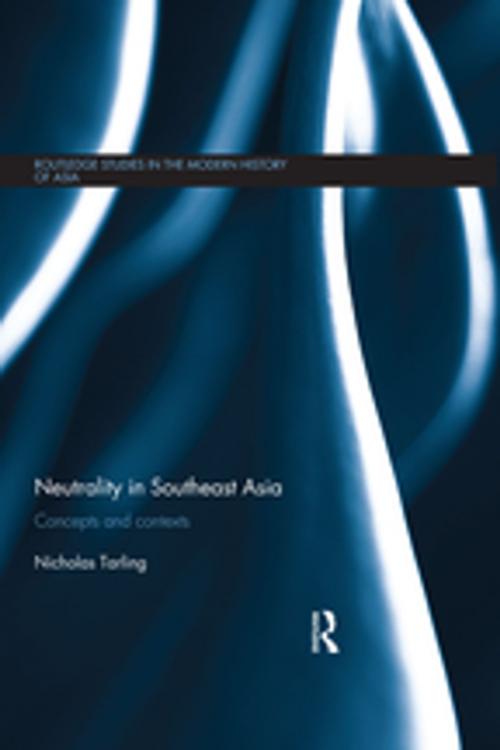Neutrality in Southeast Asia
Concepts and Contexts
Nonfiction, History, Asian, Southeast Asia, Social & Cultural Studies, Social Science, Cultural Studies, Ethnic Studies| Author: | Nicholas Tarling | ISBN: | 9781134840939 |
| Publisher: | Taylor and Francis | Publication: | October 4, 2016 |
| Imprint: | Routledge | Language: | English |
| Author: | Nicholas Tarling |
| ISBN: | 9781134840939 |
| Publisher: | Taylor and Francis |
| Publication: | October 4, 2016 |
| Imprint: | Routledge |
| Language: | English |
This book analyses the notion of neutrality to the politics of the state in Southeast Asia. Distinguishing among neutrality, neutralism and neutralisation, it asks what relation do the concepts bear to the independence of states, and how do they relate to other forms of inter-state relations and to participation in international organizations.
The author considers concepts of neutrality and the policy of non-alignment as they were developed in South and Southeast Asia. Using case studies of a variety of Asian countries, including India, Burma, Cambodia and other countries in Southeast Asia, he discusses the novel notion of a regional form of neutralisation as a means of decolonising the region and examines the relevance neutralism has in current international politics and what might it have in the future.
This new work by one of the most foremost historians on Southeast Asia is of interest to scholars in the field of Asian History, Politics, International Relations and Strategic Studies.
This book analyses the notion of neutrality to the politics of the state in Southeast Asia. Distinguishing among neutrality, neutralism and neutralisation, it asks what relation do the concepts bear to the independence of states, and how do they relate to other forms of inter-state relations and to participation in international organizations.
The author considers concepts of neutrality and the policy of non-alignment as they were developed in South and Southeast Asia. Using case studies of a variety of Asian countries, including India, Burma, Cambodia and other countries in Southeast Asia, he discusses the novel notion of a regional form of neutralisation as a means of decolonising the region and examines the relevance neutralism has in current international politics and what might it have in the future.
This new work by one of the most foremost historians on Southeast Asia is of interest to scholars in the field of Asian History, Politics, International Relations and Strategic Studies.















